The 16 teams are divided into two groups, with Group A consisting of hosts Russia, Sweden, the Czech Republic, Switzerland, Latvia, Norway, Denmark and Kazakhstan, with all games being played at the 12,100 capacity VTB Ice Palace in Moscow.
Group B sees Canada, Finland, the United States, Slovakia, Belarus, France, Germany, and Hungary playing their games at the 7,300 capacity Yubileyny Sports Palace in Saint Petersburg.
This will be just the third time the World Championships have been held in Russia since the break up of the Soviet Union, with the previous two times being in 2000 (Saint Petersburg) and 2007 (Moscow). Prior to that, the Soviet Union hosted the World Championships in 1957, 1973, 1979 and 1986, with all four taking place in Moscow.
The format of the tournament calls for each team to play the other seven teams in it's group in the Preliminary Round, which extends from today, May 6th through May 17th. The current format, as opposed to the old one in which there were four groups of four, favors the higher ranked teams, as a single loss is less devastating when playing a seven game schedule in the opening round as opposed to the earlier format's three games.
Once the Preliminary Round has been completed, the last place teams in each group will be relegated to Division I Group A for the 2017 season, unless either France or Germany finish last in Group B, as they are guaranteed a place in next year's World Championships as co-hosts of next year's event.
While Slovenia has secured their place in the 2017 Worlds by winning the recently completed Division I Group A, Italy will be anxiously awaiting the results of the Preliminary round in Russia, as they will be promoted to the 2017 Top Division tournament - unless both France and Germany finish 7th and 8th in Group B, in which case Italy will lose its promotion.
The top 4 teams in each group will advance to the Quarterfinals on May 19th with the winners meeting in the Semifinals on May 21st. The losers of those games will meet the next day on May 22nd for the bronze medal while the winners will face off for the IIHF World Championship later the same day.
Today's opening day begins with Sweden taking on Latvia in Group A, while Group B wastes no time as the United States begins their schedule with no less than Canada. Later today host Russia faces the Czech Republic in Group A in Moscow and the other Group B match sees Finland open against Belarus.
Saturday sees a massive six games on the schedule as the rest of the 16 teams begin play before the day concludes with the United States playing Belarus in Saint Petersburg. There are also six games on Sunday, by the end of which all teams will have played twice.
For fans in Canada, TSN will show, for the first time ever, every game of the World Championships. Viewers in the US can watch all of the American games, two Quarterfinals, both Semifinals and the Bronze and Gold Medal games on the NBC Sports Network, but note that some of the games will only be streamed on NBC Live Extra and not all of them will be on NBCSN. With the time difference between North America and Moscow, games will air live between mid morning and early afternoon eastern time.
The Russians have participated in the Olympics in ice hockey six times since 1994. Their best result was a silver medal in 1998 in Nagano, Japan. Their only other medal was a bronze in 2002 in Salt Lake City.
The program showed signs of life when they returned to the medal podium in 2002 with a silver medal, but 2003 and 2004 saw them again finish a distant 7th and 10th.
Things began to change with a bronze in 2005 and again in 2007 in Moscow before a satisfying undefeated run through the 2008 tournament, which concluded with a 5-4 win over Canada in Canada to claim their first championship in 15 years, something unimaginable during the days of the Soviet Union's Big Red Machine.
Their 2008 gold medal was shown to not be a fluke when they repeated as gold medalists again in 2009, a second consecutive unbeaten run that concluded with another one goal victory over Canada.
Since then the Russians have been a force to be reckoned with, earning their fourth consecutive medal in 2010 with a silver, a fourth place in 2011 and a return to gold with a championship again in 2012, this time not only undefeated, but all coming in regulation without giving up a point in the standings.
After a sixth place in 2013, they won their fifth gold medal as Russia in 2014 behind another ten consecutive regulation wins without a single game even going to overtime.
Last year they won a second straight medal, in the form of a silver, their third since 2002 to go with a pair of bronze and four gold, a total of nine medals in the last 14 years.
When competing at the 1992 Olympics in February of 1992, Russia competed as the Unified Team, a joint team from Russia, Ukraine, Kazakhstan, Belarus, Uzbekistan and Armenia, wearing the last of their old Soviet Union jerseys, only with a blank space where the CCCP lettering used to reside on the front.
By the time the World Championships arrived in late April, Russia now had their own separate hockey program and were decked out in their stunning new jerseys which featured a bold design based on the onion domes of St. Basil's Cathedral in Moscow's Red Square.
For some reason, these great jerseys had a unexpectedly short life span, having only been used for the 1992 World Championships and the 1993 World Juniors before being replaced by a new style.
Kovalev was one of the most skilled players in the history of Russian hockey and played 19 seasons in the NHL. He won a Stanley Cup with the New York Rangers, making him one of the first four Russians to ever have their name engraved on the cup.
Internationally, he played twice for the Soviet Union at the European Juniors, as part of the Unified Team at the 1992 World Juniors and Olympics, winning gold both times, and for Russia eight times, three World Championships, earning a bronze in 2005 (when he was named the Best Forward), the World Cup of Hockey twice, and two more Olympics, winning bronze in 2002.
This Tackla jersey filled a narrow gap between the Tackla jerseys of the Soviet Union and the change to Reebok branding for all teams in 1994.
Bonus jersey: Today's bonus jersey is a 2009 Russia National Team Ilya Kovalchuk jersey as worn when Russia captured the gold medal at the 2009 World Championships as Kovalchuk was named the tournament's MVP after scoring 14 points in nine games.
This style was only worn for the 2009 World Championships before it was immediately replaced by a new style for 2010.

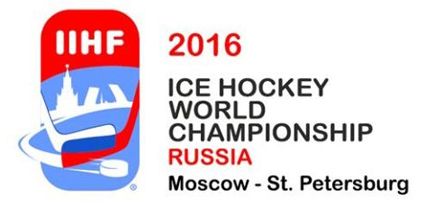
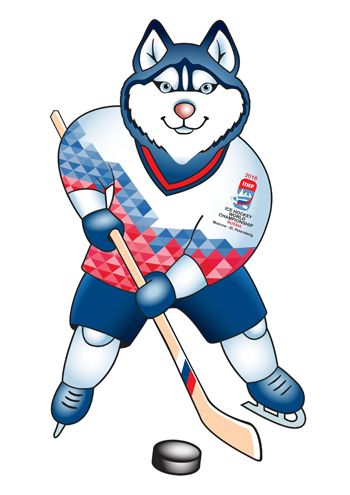
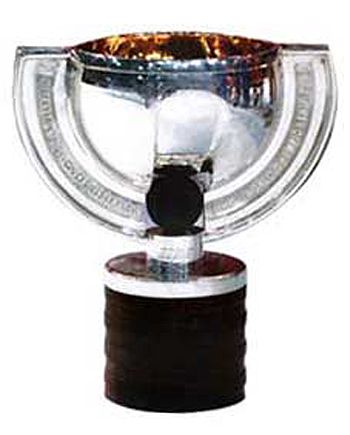
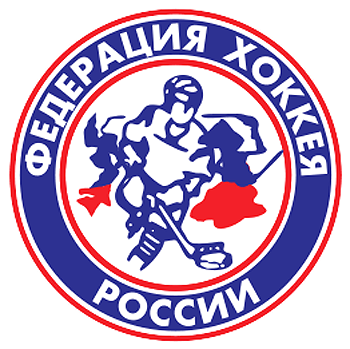
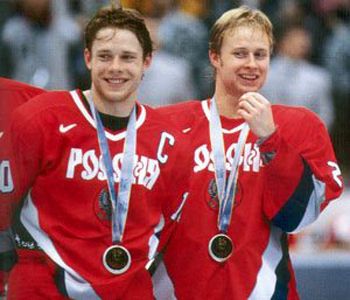
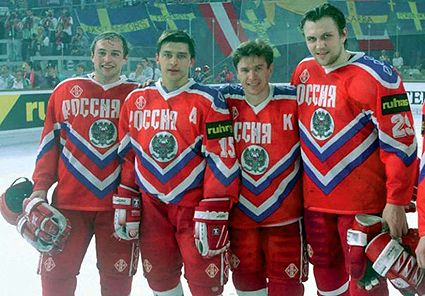
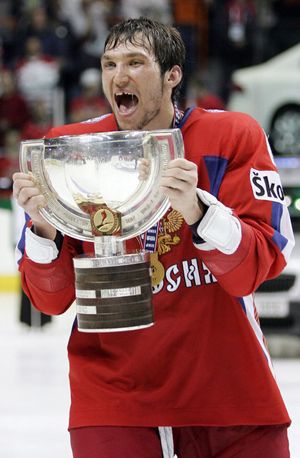
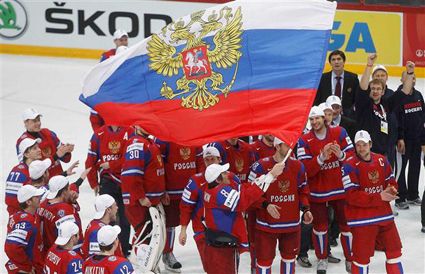
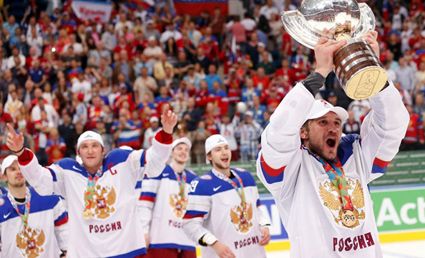
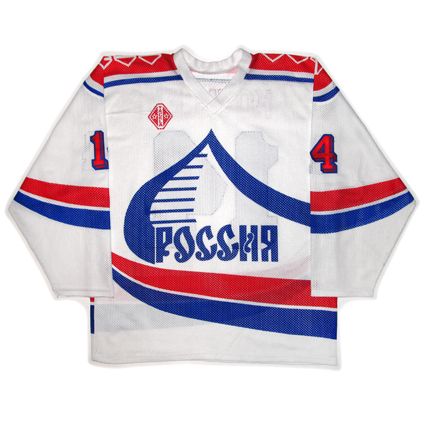
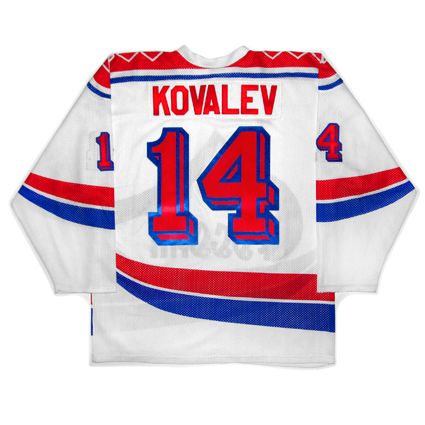
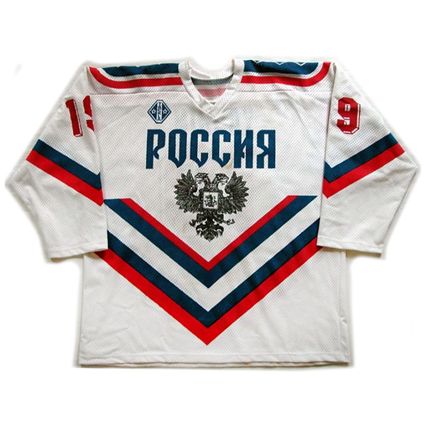
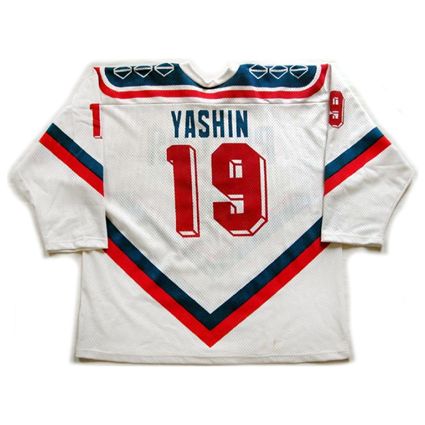
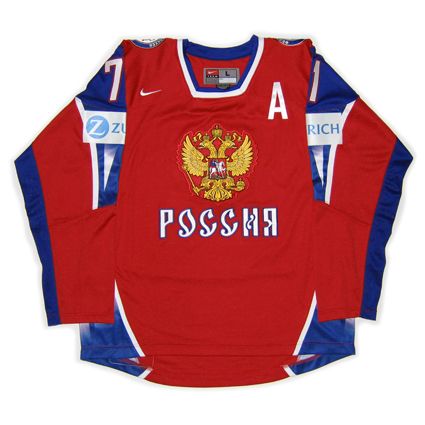
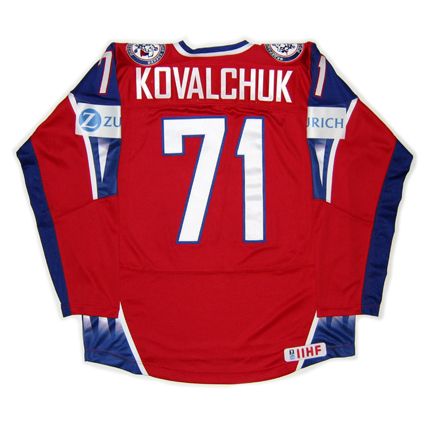










No comments:
Post a Comment
We welcome and encourage genuine comments and corrections from our readers. Please no spam. It will not be approved and never seen.